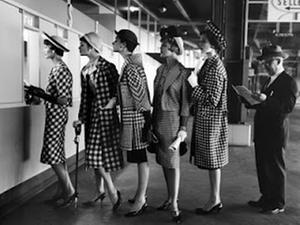In almost any situation, books and gambling can easily be linked by a single degree of separation:
What are the odds that Colm Tóibín would be shortlisted for the Man Booker Prize (currently 7-2 to win at British bookmaker Ladbrokes) and a Tony Award best play finalist during the same year for variations on The Testament of Mary. Has that ever happened before?
What are the odds that Barnes & Noble chairman Len Riggio would also be a member of the board of directors for the New York Racing Association?
What are the odds that Senator John McCain would be caught playing online poker during a Senate Committee on Foreign Relations hearing about Syria? (Book connection? Check out author Matthew Dicks's amusing commentary on the incident.)
What are the odds that in 1981, I'd leave a Santana concert early, drive to the nearby harness track and watch Rambling Willie race during his nationwide book tour for Rambling Willie: The Horse that God Loved? (I bought a copy and had it signed.)
The odds, in each case, are pretty damned good.
A few years ago in the New York Times, Curtis Sittenfeld recalled an editor telling her that "people think publishing is a business, but it's a casino." Living in Saratoga Springs, I'd rather think of it as a horse race, with a mind-numbing list of factors to analyze before placing your bet and hoping for success: consider multiple entries, research past form, evaluate the people involved (owners/trainers/jockeys or writers/publishers/booksellers), weigh the current odds for success/failure and much more. Do your handicapping, eliminate the obvious losers, narrow down the list of potential winners and then place your bet. What are the odds you'll be wrong? You know the answer to that one. And yet we keep going back to the book trade window to bet again as we write, publish and market more books, always hoping for the elusive, irresistible combination of luck and performance that makes for a winner, however you might define the term.
What are the odds you'll be wrong? You know the answer to that one. And yet we keep going back to the book trade window to bet again as we write, publish and market more books, always hoping for the elusive, irresistible combination of luck and performance that makes for a winner, however you might define the term.
Speaking of winners, it's that time of year when British bookies train their focus momentarily on the world so closely aligned to their name, even if the stakes are low. The Atlantic pointed out that only £25,000 (US$39,563) was bet with Ladbrokes on the Booker prize last year, compared to as much as £350,000 on an important Premier League soccer match.
Noting that British newspapers traditionally cover major literary prizes in terms of odds, bookmakers "need a dependable, accurate method of calculating them in a way that ensures the house will still win--but also one that doesn't come with a required-reading list for potential bettors," the Atlantic wrote.
"The most important thing to be aware of is critical reception," said Alex Donohue of Ladbrokes. "We do not read all of the books and in actual fact avoid doing so in order to [not] cloud judgment."
Keeping in mind that this is a year in which Hilary Mantel can't win her biennial Booker, here are the current odds from Ladbrokes for two of the Big Games in this fall's book competitions:
Nobel Prize in Literature
Haruki Murakami (3-1)
Joyce Carol Oates (6-1)
Peter Nadas (7-1)
Ko Un (10-1)
Alice Munro (12-1)
Adonis (14-1)
Assia Djebar (14-1)
Philip Roth (16-1)
Amos Oz (16-1)
Thomas Pynchon (20-1)
Ngugi Wa Thiog'o (20-1)
Man Booker Prize
Harvest by Jim Crace (5-2)
The Testament of Mary by Colm Toíbín (7-2)
The Luminaries by Eleanor Catton (4-1)
A Tale for the Time Being by Ruth Ozeki (5-1)
We Need New Names by Noviolet Bulawayo (6-1)
The Lowland by Jhumpa Lahiri (6-1)
"After years of hovering in the wings, this could be Haruki Murakami's year" for the Nobel, according to the Guardian, which pointed out that the Japanese author "has been considered a frontrunner for the past 10 years." But some curious betting trends last week that dramatically reduced Kenya's Ngũgĩ wa Thiong'o's odds are noteworthy, including a large bet at Ladbrokes by "a Swedish customer," the Atlantic reported.
Shortly before the Booker shortlist was announced, Ladbrokes had Crace listed as favorite at the same odds he is now, which may mean something. When the longlist first came out in August, Philip Hensher offered this early handicapping advice: "I can hardly see where else the prize can go than to the long-overdue Crace."
I was one for two in 2012, predicting that Mo Yan would win the Nobel and Alison Moore's The Lighthouse would somehow wrest the Booker from prohibitive favorite Mantel. But it's a new year and gamblers are ever-optimistic. Now it's time for my 2013 predictions. Drum roll, please.... Since no self-respecting, well-read punter would ever bet a favorite, I'm backing Colm Tóibín for the Man Booker Prize and Alice Munro for the Nobel Prize in Literature. So... Who do you like? --Robert Gray, contributing editor

